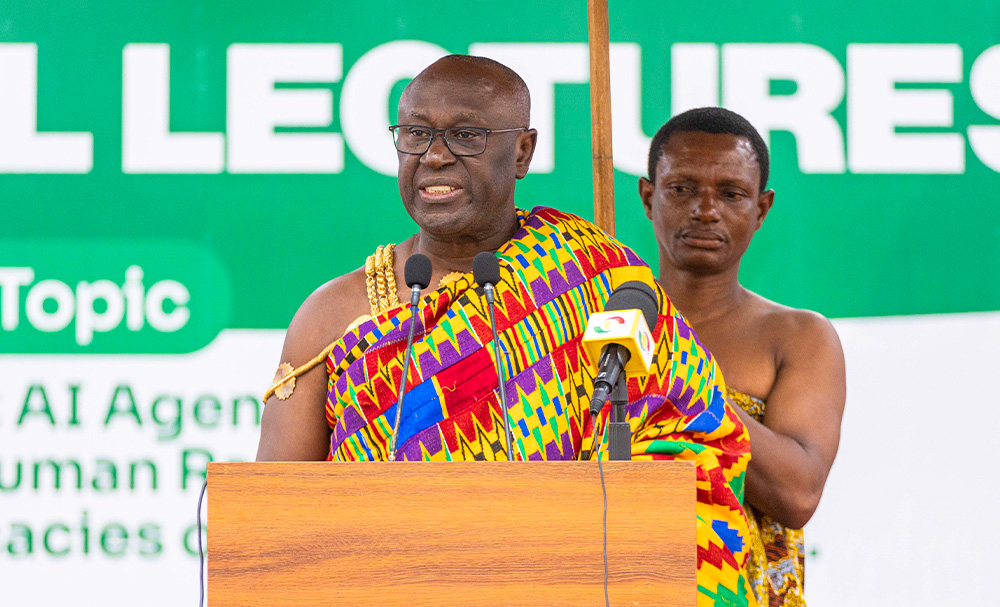The Council Chair, Akyamfour Asafo Boakye Agyemang-Bonsu, has urged Ghana to prepare for a future shaped by artificial intelligence.
He stressed the need for strategic infrastructure, local data management, and governance to ensure the continent benefits from emerging technologies.
Speaking at the 13th Edition of the RP Baffour Memorial Lecture, he said AI presents both immense opportunities and serious ethical, social, and governance challenges.
“AI is one of the defining questions of all times. How do we as a university and a society prepare for a future shaped by AI and ultimately by super intelligence?” he asked.
He noted that infrastructure is critical to Africa’s AI readiness.
“Without infrastructure, we cannot participate in AI. AI is energy hungry. Reliability is an essential requirement for an AI-driven economy. So if AI needs energy and we are still at the stage of doing so, it means we don’t have the infrastructure for AI,” he said.
Akyamfour Agyemang-Bonsu warned against digital dependency, highlighting the need for local data ownership.
“We must phase out digital colonialism, where data is extracted from us, processed abroad, and sent back to us. We need to start looking at how we gather our own data and manage it locally, because AI doesn’t depend on anything else it depends on data,” he said.
He emphasised that AI must be contextualised for Ghanaian realities.
“AI’s hypocritic oath is to do no harm in a world of biased data and super intelligence, health equity and the imperative for geo-contextual AI development,” he said.
The council chair praised KNUST’s existing initiatives and called for continued support.
“Our Responsible Artificial Intelligence Laboratory (RAIL-KNUST) is a very good example. We cannot allow languages to die in the digital age; we need to support these types of systems that are working currently to help us bring up our languages,” he said, referring to the RAIL project as a key step toward African AI development.
He also recommended practical steps for national AI preparedness: “We can already start advocating for a computing task force to solve the energy and data centre challenge, and to launch a national corpus project to digitize our oral history and languages for AI training. This is how we can execute the Data Ghana agenda in the age of super intelligence.”
Story: Edith Asravor Photos: Isaac Kwaku Duah

















